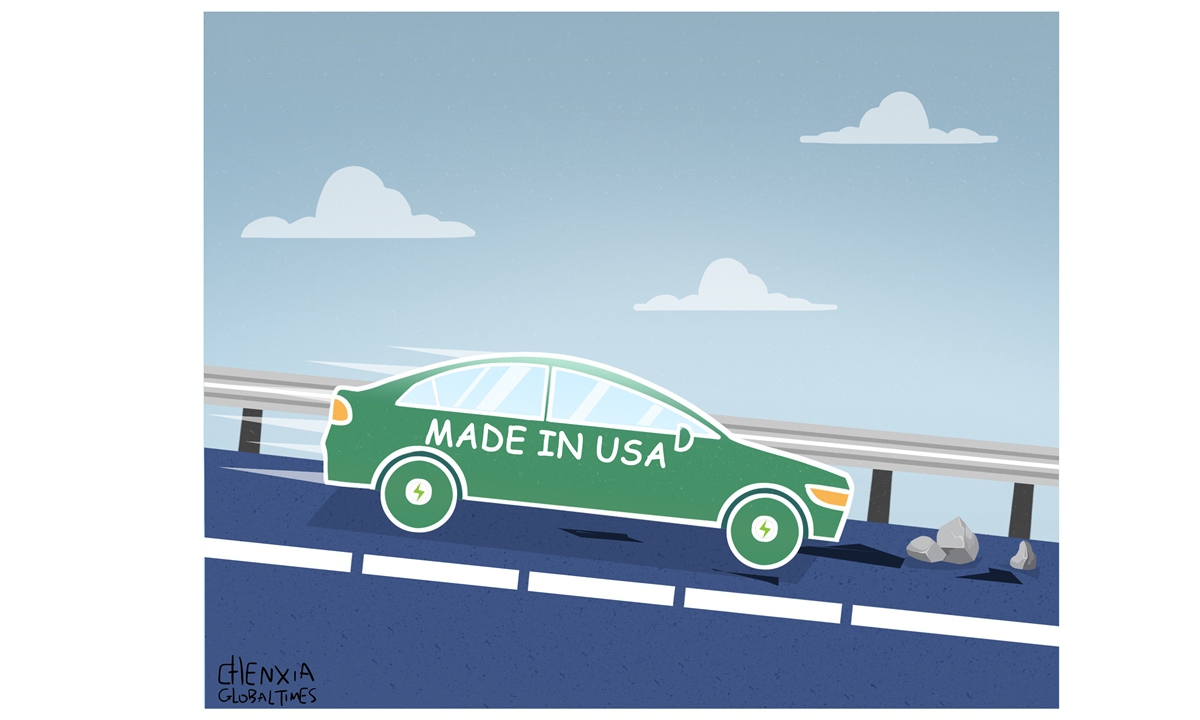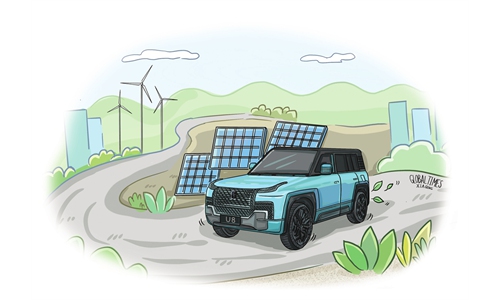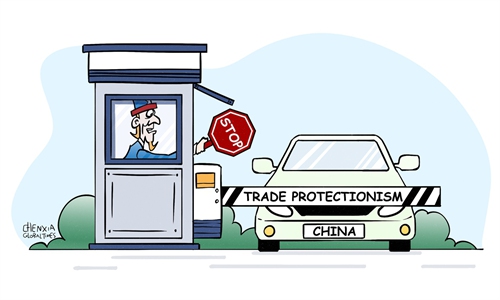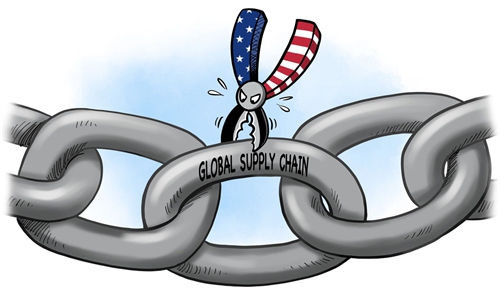
Illustration: Chen Xia/Global Times
At a time when the global electric vehicle (EV) industry is likely to be taken by the protectionism storm, it is encouraging to see someone from the European auto industry to speak out for the necessity of competition for the development of the EV industry.In an interview with the Financial Times published on Tuesday, Ola Källenius, CEO of Mercedes-Benz, rallied against protectionism and said lawmakers in Brussels should reduce, not raise, duties on Chinese EV makers, which he argued will force European companies to make better vehicles.
Amid growing protectionism, the CEO's recognition of market competition and challenges is highly commendable, which is worthy of reflection of governments and industry players.
His remarks came at a time when US officials seem to have made no secret of their attempt to clamp down on the development of the Chinese EV sector with various barriers. US Treasury Secretary Janet Yellen on Wednesday said the Biden administration is taking steps to ensure success of the domestic EV industry in the face of China's growing exports in the sector.
It is no secret that American politicians are doing everything they can to keep Chinese EVs out of the US market. To protect the domestic auto industry, they have played up the so-called national security threat and urged the Biden administration to increase tariffs on Chinese EVs even further, despite current US tariffs of 25 percent on Chinese vehicles already making Chinese EV uncompetitive in the US market.
While the global expansion of Chinese EV makers such as BYD has fueled fears of potential negative impacts on the American auto industry, it should be noted that protectionism is unsustainable in any way. As numerous examples stand, trade protectionism may protect certain industries from market competition during a limited period of time, but it will sabotage the development potential of industries, making it hard to improve competitiveness in the long run.
For instance, despite the generous subsidy support from the Inflation Reduction Act, which was signed in August 2022, there are signs that demand for EVs in the US appears to be slowing and may not be quite as intense as either automakers or the Biden administration has expected. In the second half of last year, Ford paused construction of its $3.5 billion EV factory in Michigan, while General Motors abandoned its plan to build 400,000 EVs by mid-2024, according to media reports.
There is no denying that the rise of Chinese EVs has brought fierce competition to the global industry, but this is the inevitable trend of the industrial development, which is also in line with the global efforts in battling climate change. Shutting out competition is not the best answer to the current situation. The world's technological progress will not be held back by protectionism. Attempt to "trip others up" instead of "running faster" may seem like a win, but is actually a loss of one's own long-term development and has encumbered the progress and prosperity of the world.
At present, the lack of affordable EVs in the US market has become a sore point in its push for clean energy, and local manufacturers seem to have little incentive to find ways to lower costs under the government protection. The US protectionist policy has led to overprotection in its EV industry, which is hindering local automakers' innovation and competitiveness. If Chinese EVs enter the US market, it will at least force US automakers to step up the pace of innovation or pursue more cost-efficient ways of manufacturing.
Indeed, under the global transitioning toward green industry, it is essential for companies and governments to welcome competition with an open mind for the purpose of promoting technological innovation and industrial development. In the era of globalization, cooperation and competition among countries is inevitable. What really needs protection is the fair market environment, instead of short-term interests of local manufacturers.



